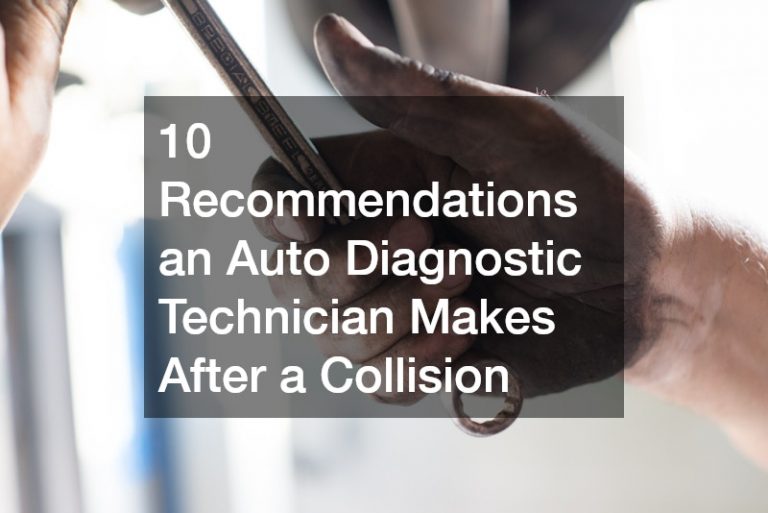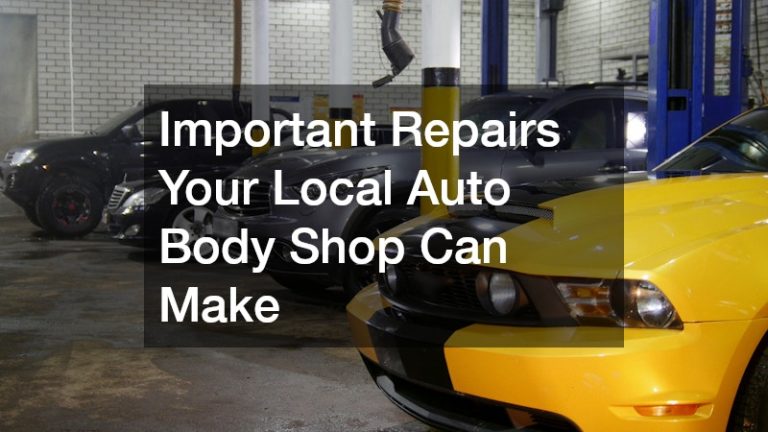

-
Transparency builds trust: A good mechanic clearly explains issues, provides written estimates, and shows proof of necessary repairs.
-
Honest repair recommendations save money: Mechanics who prioritize safety and urgency over upselling protect your wallet.
-
Education empowers vehicle owners: Trusted mechanics teach preventive maintenance and answer questions patiently.
-
Fair pricing and warranties matter: Consistent, itemized estimates and honored warranties indicate integrity.
-
Certifications signal professionalism: ASE certification, AAA approval, and ongoing training reflect up-to-date expertise.
-
Long-term relationships are a hallmark of trust: Mechanics who track service history, offer reminders, and provide loyalty perks genuinely care about your interests.
-
Reputation and reviews provide validation: Positive customer feedback and professional recognition help confirm a mechanic’s reliability.
I. Setting the Stage – Why Trust in a Mechanic Matters

Finding a reliable auto mechanic is often one of the most stressful parts of owning a car. Whether you drive a compact sedan, an SUV for your family, or a truck for work, your vehicle is an essential part of daily life. Yet, when something goes wrong, most drivers face a difficult decision: which mechanic can they truly trust?
According to AAA, two-thirds of U.S. drivers admit they do not trust auto repair shops, citing overcharging and unnecessary repairs as the most common concerns. Meanwhile, the Bureau of Transportation Statistics notes that the average American driver spends over $1,200 annually on maintenance and repairs. That’s not pocket change—especially when you consider how easily costs can spiral if you encounter dishonest or careless service.
This is where trust makes all the difference. A mechanic who genuinely cares about your best interests isn’t just fixing your car—they’re helping protect your safety, your family’s comfort, and your financial well-being. They take the long view, aiming to keep you as a loyal customer rather than squeezing you for a quick profit.
For many people, the best advice comes from asking friends, neighbors, or coworkers to recommend an auto mechanic. But even with referrals, it’s important to know what qualities and behaviors signal that a mechanic is worthy of your trust. This guide provides those exact signs—so you can feel confident the next time you hand over your keys.
II. Sign #1 – Transparency in Communication
A trustworthy mechanic is a clear communicator. If they have your best interests in mind, they won’t leave you confused or guessing. Instead, they’ll make sure you understand exactly what’s happening with your car and why certain services are necessary.
What good transparency looks like:
-
Plain-language explanations: Instead of telling you your “rotors are warped,” they’ll say, “Your brake rotors have worn unevenly, which causes vibration when you stop.”
-
Show-and-tell approach: Many honest mechanics bring customers into the shop or provide photos and videos so you can see the problem with your own eyes.
-
Written estimates: Trustworthy shops break down the labor, parts, and taxes in a detailed written estimate. You know what each charge means before work begins.
-
Step-by-step updates: If additional issues arise, they’ll call you before making changes, explain what they found, and ask if you’d like to proceed.
🚩 Red flag: Mechanics who dodge your questions, use overly technical jargon to confuse you, or refuse to provide written estimates are signaling that your interests may not be their priority.
💡 Pro tip for U.S. drivers: The Federal Trade Commission advises that you should never feel pressured to approve repairs on the spot. A mechanic who respects your best interests will encourage you to take the time you need.
III. Sign #2 – Recommending Only Necessary Repairs
One of the clearest ways to spot a mechanic who values your trust is by noticing whether they recommend only what’s truly necessary. Unfortunately, many shops pad their income by pushing add-on services that aren’t urgent—or sometimes not needed at all.
How a trustworthy mechanic approaches repairs:
-
Safety first: They’ll prioritize repairs that affect safety (brakes, steering, tires, lights) before cosmetic or non-urgent issues.
-
Separating urgent vs. optional: A good mechanic will say, “Your battery is weak but still starting fine. It may last another couple of months,” instead of pressuring you to replace it immediately.
-
Manufacturer guidelines: Honest mechanics reference your vehicle’s owner’s manual or manufacturer’s maintenance schedule. If the manufacturer recommends a transmission fluid change at 60,000 miles, they won’t suggest doing it at 20,000 just to make a sale.
-
Offering timelines: Instead of “You need this today,” they might say, “This will need attention in about six months, but you’re safe for now.”
🔧 Example: A customer brought in a vehicle for squeaky brakes. Mechanic A recommended a full brake system replacement costing $1,000. Mechanic B inspected and found the brake pads had 50% life left, advised waiting, and charged only for an inspection. Mechanic B gained a loyal customer.
💡 Practical tip: Ask your mechanic if you can keep the old parts. A mechanic acting in your best interests will happily show them to you as proof the work was necessary.
IV. Sign #3 – Willingness to Educate Customers
The difference between a mechanic who only wants your money and one who wants a long-term relationship often comes down to education. A mechanic with integrity takes time to explain, teach, and empower.
Signs your mechanic is an educator:
-
Explains why, not just what: They don’t just say, “You need an oil change.” They explain that dirty oil can clog your engine and lead to repairs costing thousands of dollars.
-
Demonstrates preventive value: They’ll tell you how tire rotations prevent uneven wear and extend tire life—saving you money over time.
-
Encourages questions: Instead of making you feel like a nuisance, they welcome your curiosity and answer with patience.
-
Shows you resources: Some even hand out brochures, email service reminders, or recommend official manufacturer websites so you can double-check.
🚩 Red flag: A mechanic who dismisses your questions or tries to intimidate you with technical language is signaling they don’t care about building trust.
💡 Real-world benefit: When people recommend an auto mechanic who educates their customers, they’re pointing you to someone who is less likely to mislead you—and more likely to save you money in the long run.
V. Sign #4 – Fair and Consistent Pricing
Money is one of the biggest sources of distrust between mechanics and customers. A shop that has your best interests in mind will be upfront, consistent, and fair in how they charge.
What to look for in pricing practices:
-
Itemized quotes: Every part and labor cost should be listed clearly.
-
Sticking to the estimate: A trustworthy mechanic won’t tack on hundreds of dollars in surprise charges. If something unexpected comes up, they’ll call you before proceeding.
-
Warranties on parts and labor: Standing behind their work shows confidence and integrity.
-
Comparable with industry standards: Tools like RepairPal, Edmunds True Cost to Own, or Kelley Blue Book repair estimates can help you check.
💡 Pro tip: A mechanic with integrity won’t be offended if you say, “I’d like to compare this estimate.” In fact, they may recommend you do so—because they know their prices are fair.
🚩 Red flag: Shops that refuse to give written estimates or dramatically underbid competitors (then inflate the bill later) are not prioritizing your interests.
VI. Sign #5 – Professional Certifications and Ongoing Training
In the U.S., certifications are one of the clearest signals that a mechanic is committed to professionalism and ongoing education.
Key credentials to look for when you recommend an auto mechanic:
-
ASE Certification (Automotive Service Excellence): A nationally recognized credential showing mastery in specific areas of auto repair.
-
AAA Approved Auto Repair facilities: Shops vetted for quality, customer service, and fair pricing.
-
Automotive Service Association (ASA) membership: Indicates adherence to a strict code of ethics.
-
Specialized training: For hybrids, EVs, or specific manufacturer models.
💡 Pro tip: Certification isn’t a one-time event. ASE-certified mechanics must retest every five years, which ensures they’re staying up to date.
🚩 Red flag: A mechanic who dismisses the importance of training or avoids displaying certifications may not be as current as they claim.
VII. Sign #6 – Focus on Building Long-Term Relationships
A mechanic who cares about you isn’t trying to maximize revenue from a single visit. Instead, they want you to come back for years to come.
How you can tell they’re focused on relationships:
-
Vehicle history tracking: They remember past services, making your maintenance plan more efficient.
-
Reminders and follow-ups: They send timely notices for oil changes or upcoming inspections.
-
Customer loyalty perks: Discounts, free tire rotations, or priority scheduling for repeat customers.
-
Advice that saves you money: For example, telling you to wait until your manufacturer’s warranty covers a repair.
💡 Real example: A mechanic advised a family to hold off on a $3,000 transmission repair until their warranty kicked in two weeks later. That act of honesty built loyalty and led the family to recommend the mechanic to their entire neighborhood.
VIII. Sign #7 – Respect for Your Time and Convenience
Time is just as valuable as money. Mechanics who truly respect you understand that being without a car can disrupt your life.
How they show respect for your time:
-
Flexible appointments: They work around your schedule, not just theirs.
-
Loaner cars or shuttles: Many reputable U.S. shops provide courtesy vehicles or rides to work.
-
Comfortable waiting areas: Free Wi-Fi, coffee, or even workspaces for those waiting on short services.
-
Consistent updates: Instead of leaving you in the dark, they text or call if the repair is delayed.
🚩 Red flag: Surprise calls when the car is “done” but the bill is far higher than expected.
IX. Sign #8 – Positive Reputation and Customer Reviews
Reputation matters. In today’s digital age, it’s easier than ever to evaluate a mechanic’s track record.
Where to check:
-
Google and Yelp reviews: Look for recurring themes—words like “honest,” “fair,” and “explained everything” are good signs.
-
Better Business Bureau: Check for complaints and how they were resolved.
-
AAA Approved listings: These shops are vetted for quality and fairness.
-
Word-of-mouth: Asking colleagues or neighbors to recommend an auto mechanic often yields reliable leads.
💡 Pro tip: Don’t just read the 5-star or 1-star reviews—check the middle ones. They often contain the most detailed and balanced feedback.
X. Red Flags to Watch Out For
It’s just as important to know what warning signs to avoid:
-
No written estimates offered.
-
Overly aggressive upselling with scare tactics.
-
Mechanics unwilling to answer questions.
-
Shops that won’t show you the problem.
-
Lack of certifications on display.
-
Consistently poor reviews citing dishonesty or hidden fees.
XI. Practical Checklist for Car Owners

Here’s a quick checklist to use when evaluating a mechanic:
-
Did they explain the problem clearly in simple terms?
-
Did they offer a written, itemized estimate before starting work?
-
Did they separate urgent repairs from those that can wait?
-
Do they hold certifications like ASE or AAA approval?
-
Did they show you the problem visually (old parts, photos, videos)?
-
Do you feel comfortable asking them questions?
-
Do reviews and recommendations from others confirm their trustworthiness?
If the answer is “yes” to most of these, you’ve likely found a mechanic who truly values your best interests.
XII. Case Studies: Good vs. Bad Mechanic Experiences
Case 1 – The Honest Advisor
A driver brought in a car with a minor oil leak. Instead of pushing a $900 gasket replacement immediately, the mechanic explained it was a slow seep and suggested monitoring it until the next oil change. This saved the customer money and built trust.
Case 2 – The Upseller
A driver went to a chain for a $40 oil change and was told they urgently needed $1,200 in repairs. Suspicious, they got a second opinion from an independent shop, which confirmed only one $150 service was necessary. The driver never returned to the chain shop.
XIII. Resources for Vehicle Owners
For U.S. drivers looking for trustworthy repair guidance:
-
AAA’s Approved Auto Repair Program – Find vetted shops.
-
ASE “Find a Shop” Tool – Search by certification.
-
RepairPal Estimator – Compare fair prices.
-
FTC Consumer Guide to Auto Repair – Learn your rights as a consumer.
XIV. Conclusion – Building Trust on the Road
Choosing a mechanic isn’t merely about convenience—it’s about safeguarding your wallet, ensuring your safety, and preserving your peace of mind. The signs highlighted in this guide—clear communication, honest repair recommendations, fair pricing, proper certification, and a long-term focus—are the hallmarks of a professional who genuinely has your best interests at heart. According to resources like Wawanesa’s guide on choosing a trustworthy mechanic, evaluating reviews, certifications, and recommendations can significantly reduce the risk of unnecessary repairs and ensure that your car receives reliable service.
When you recommend an auto mechanic to someone, you’re not just suggesting where they should take their car—you’re helping them avoid stress, save money, and gain a trusted partner on the road. According to the Federal Trade Commission’s Auto Repair Basics, seeking recommendations from friends, family, and other trusted individuals, as well as researching repair shops before you need one, can help you find a reputable mechanic and avoid being rushed into a last-minute decision.
By paying attention to these signs and learning from real-world examples, you’ll be better equipped to find a mechanic who values relationships over revenue, honesty over upselling, and long-term trust over short-term gain. That’s the kind of professional worth recommending again and again.






